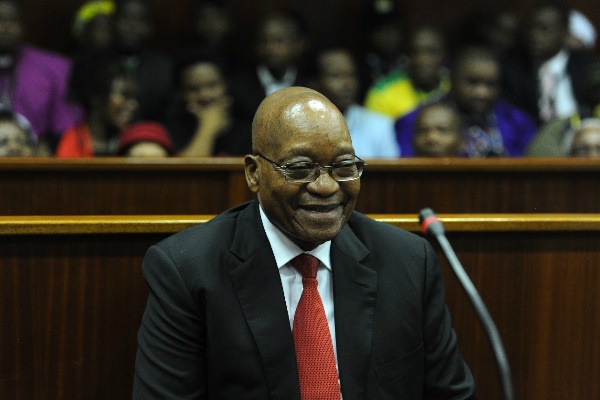
Retracing the last steps struggle icon Solomon Mahlangu took 39 years ago before he was executed, Deputy President David Mabuza said he was reminded that the country could never go back to an inhumane and barbaric past.
Mabuza visited the prison on Friday to mark the 39th anniversary of Mahlangu’s execution and to pay tribute to him.
He said that walking through the gallows of the Pretoria Central Prison was about remembering the life and times of Mahlangu and all other prisoners who had been executed for political reasons.
ALSO READ: ‘Solomon Mahlangu wanted to die like a soldier’
“Being here is a testament that our struggles were not in vain. Here we are standing outside this cruel place, all of us free. That means, what they [fought] for was real and we are all inspired by their actions of courage,” Mabuza said.
“People had to sacrifice their lives for you and me to be free and this will serve to propel all of us forward to do what is necessary to make this country a better place.”
Mahlangu’s brother Chief Lucas Mahlangu, who accompanied Mabuza, asked South Africans to unite so that everyone could live in peace and harmony.
‘Tell my people that I love them’
“Solly’s blood unite[d] our country even more so that we can march out of this house of bondage in peace,” said Mahlangu’s brother.
“We have been too long in this house [of] bondage. So, by uniting, we South Africans, we will be helping the government grease the hinges of the doors of the house of bondage so that everyone can march out and live in peace and harmony.”
Mahlangu, an Umkhonto weSizwe soldier at the time, was arrested in 1977 shortly after he returned to South Africa from Angola and Mozambique, where he had received training to help with student protests in a continuation of the 1976 uprising.
He was tried and convicted of two murders and three charges under the Terrorism Act.
His last words before he was hanged on April 6, 1979 were: “My blood will nourish the tree that will bear the fruits of freedom. Tell my people that I love them. They must continue the fight.”
His execution provoked international outrage and protests against South Africa’s apartheid policy.







